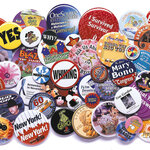
Whoever said that the pen is mightier than the sword definitely knew what they were talking about. To humans, words are more than a means of communication, they can shape our beliefs, behaviors, feelings and ultimately our actions. Although swords can coerce us, and threaten, nothing is more powerful than a tool which can shape our opinions.
When it comes to language and communication, the rule is that it’s not what you say, but what people hear. Words are one of the most powerful tools that we as humans possess; they can ignite revolutions or defuse tension. The problem is that words…



